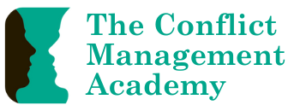This just released book is an invaluable resource for all kinds of coaches. The contributors include an impressive group of coaching experts from around the world. The phrase in the subtitle “ethical maturity” has been chosen with purpose. Recent ethics coaching research reported that the number of ethical dilemmas experienced by coaches increases with years of experience, suggesting not that less experienced coaches do not experience ethical dilemmas, but rather that they are not alert to their presence.
The book includes a critical discussion of ethics, the role of professional bodies and ethical codes, and much more. It is divided into four sections: foundations of ethics in coaching, ethics in coaching practice, pushing the boundaries of conventional ethical thinking in coaching, and twelve case studies (although there are many more case studies and vignettes throughout the book). Each chapter is followed by excellent discussion points for reflection and recommended additional reading.
Part 1 covers ethics and how it applies to coaching and the coaching relationship; the role of professional coaching bodies, ethical codes and ethical decision making frameworks; the ethics of various attempts at evidences base for coaching; and legal considerations relating to ethics.
Part 2 includes discussion about the psychological contract in coaching; supervision; team coaching; note taking and record keeping; the use of psychometrics; mental health and suicide management; multi-party contracting; and transnational assignments.
Part 3 explores positive ethical practice for coaching excellence and wellbeing; education and development of coaches; ethics, wisdom and adult development; culture and race; incapacity and unexpected death; the ecological environment; coaching in a digital world; multi-source feedback; and the promotion of coaching.
The case studies in part 4 cover scenarios involving intimacy; postgraduate teachers; organisational status quo; loyalties; the influence of a boss in hierarchical culture; team coaching; internal coaches; emotional entanglement; recording of coaching sessions; coach qualification; and diversity, inclusion and biases.
The authors acknowledge that ethical understanding in the coaching profession tends to be subjective and poorly defined. However, they do not promote developing some universal code. Rather, they suggest that coaches need to strengthen their ethical fitness and engage in regular ethical conversations, to foster and integrate a shared ethically aware mindset into the coaching community’s professional identity.
This book is an excellent resource for this purpose. It is essential reading for students of coaching, to support qualified coaches’ professional development and reflective practice, and also for anyone who trains coaches.

